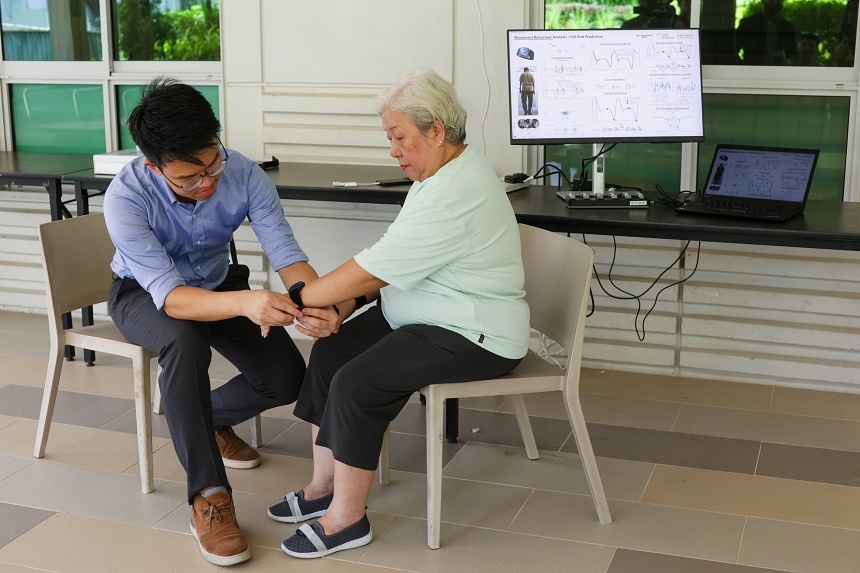For the Target study, the researchers have, so far, recruited almost 2,300 seniors through home visits and are close to completing the baseline screening process for them.
Approximately 1,200 sets of data have been analysed, showing that about 40 per cent to 50 per cent of these seniors are at high risk of falls.
This study will conclude in February 2026.
The executive director of Duke-NUS’ Care, Associate Professor Angelique Chan, who is leading the Target study, said the findings reveal a diverse array of risk factors impacting Singapore’s elderly, highlighting the complexity of fall prevention.
“These risk factors include previous fall history, living environment, poor eyesight and multiple chronic conditions, including cognitive impairment. Preventing falls among the elderly therefore calls for a broad approach to address multiple factors, but also requires customisation for one’s unique circumstances,” Prof Chan added.
Duke-NUS aims to expand the Safe-Tech trial with its partnering AACs and day rehabilitation centres to help more seniors prevent falls. The research team is currently evaluating the programme’s effectiveness and feasibility before finalising it after the trial ends in May 2026.
After going through a three-month pilot of the trial, Madam Tan has regained strength and overcame her fear of falling. She can now manage short flights of stairs independently and go for more family outings. She has even resumed taking the bus, accompanied by her children.
“My walking has become steadier and now I can visit the hair salon or see a doctor on my own,” said Madam Tan.

